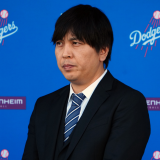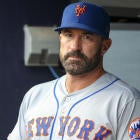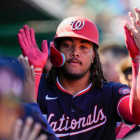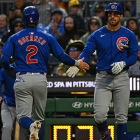On Thursday, the New York Mets announced manager Mickey Callaway would not return for a third season. Callaway's dismissal is the fourth managerial firing of the winter. Add in the Chicago Cubs permitting Joe Maddon to become a free agent and both Bruce Bochy and Ned Yost retiring, and there are now seven managerial posts open across the land.
"We want to thank Mickey for his consistent work ethic and dedication over the last two seasons and I'm certain these characteristics will serve him well in his next opportunity," Mets general manager Brodie Van Wagenen said. "A decision like this is never easy, however, we believe it is in the best interest of the franchise at this time."
Callaway guided the Mets to an 86-win season that featured too many highs and lows to count, from a 46-26 second half to a confrontation with a reporter that precipitated Jason Vargas's banishment to the Phillies. In all, Callaway posted a winning record with the Mets -- which makes it odd that his removal seemed like a matter of when rather than if.
Part of Callaway's failings were on him. Most notably, he was prone to weird statements and explanations in the media, giving a version of events that his players sometimes pushed back against. Managers are employed for their in-game strategy, of course, but they're also around to serve as a conduit between the front office and the players and the coaches, and to be the public face of the franchise's executive side. Callaway came up short in all regards.
But part of Callaway's fall was due to external circumstances: he was hired under previous management, rather than by general manager Brodie Van Wagenen. Van Wagenen and Callaway seemed to clash often from the outside, with the former reportedly even making strategical decisions and phoning them in from his couch.
Whereas Van Wagenen beefed up the Mets' lagging analytics department, Callaway openly disregarded the importance of statistical evaluation. Perhaps it was for show -- a way to shield players from the cold and often calculating methods hatched above -- but his in-game decisions didn't always suggest as much.
Callaway, 45 next May, will probably get another managerial opportunity somewhere down the road. At minimum, he'll slot in as someone's pitching coach -- the role he seemed to excel at during his time with Cleveland. If he can learn from this experience -- and apply these lessons to his next job -- then he just might turn into a quality manager someday.
As for the Mets, they'll be on the hunt for their 18th full-time skipper, and their third since winning the 2015 pennant.






















